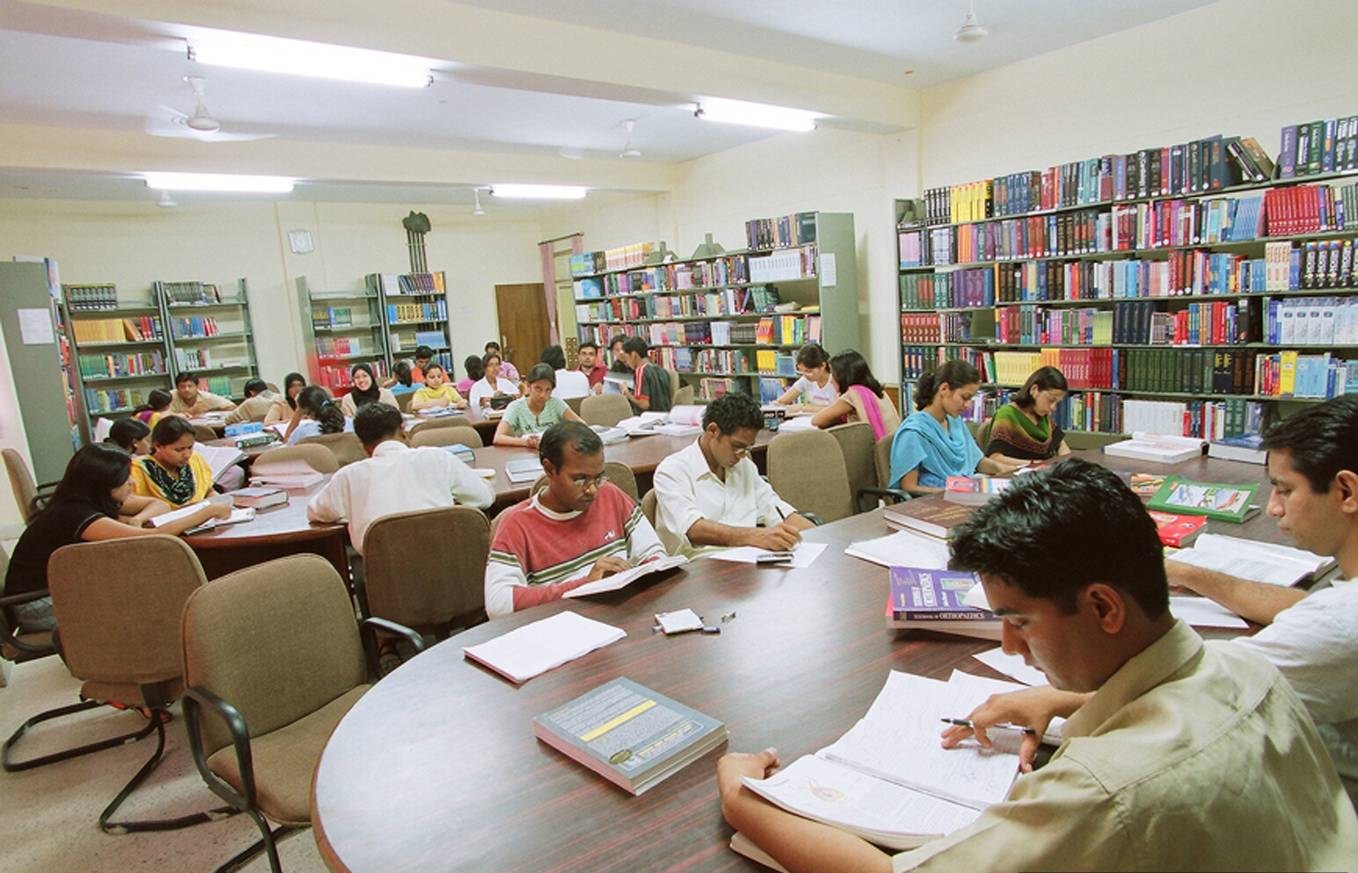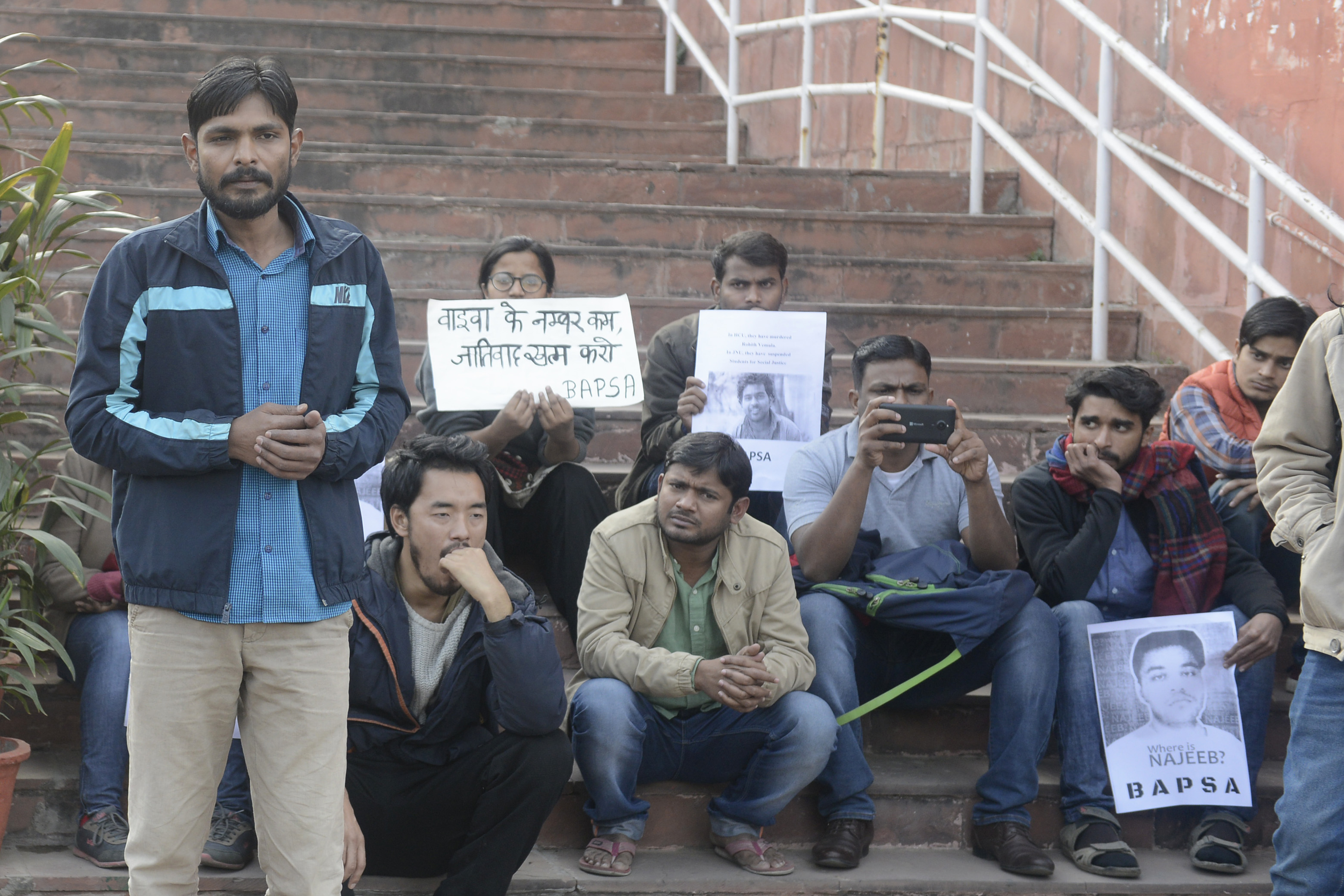Sadiq Rangwala is an experimental atomic, molecular and optical physicist in Bangalore
Academic spaces are crucibles of change
It is therefore important for any society to allow and build within it the ability to change and transform. Societies need both relative stability, so that the average life lived is not a desperate struggle for survival, and organic mechanisms to grow and self-transform such that the social, technological, economic, political change which result, are relatively smooth. In order to do that, they need spaces where the new can be attempted, created and tested. The most structured of these spaces across our world are academic institutions, universities, colleges and schools. It is here that the experiments with change take place.
These experiments are what academics across disciplines engage with in universities and other institutions of higher learning. In schools and colleges we prepare young people to understand the present and prepare for both their own and society’s transformation. The dual role of academics is as creator and transmitter of knowledge. Knowledge however is not created in vacuum. It is created by displacing and transforming the views that are institutionalised over time by repetition, tradition and often by earlier academic work. From this perspective, new results are very often adversarial to the commonly held views of the societies from which, ironically, support for the creation of new knowledge emerges. This is also why the transmission of knowledge is both an essential and vital part of academics.
Idea-free societies seldom grow
The setting of goals is double edged, since on the one hand it organises and directs outcome, but this also results in circumscribing curiosity and exploration, due to risk mitigation and financial constraints. In other words, the tendency to inquire in directions unimagined and into the unstructured is curbed and curtailed, while a rush towards the more certain increases. Along this road comes a tendency to target limited and accessible goals, which leads to stunting and degeneration of academia. What is forgotten is that real economic or strategic advantage seldom flows to those societies who do not originate ideas, platforms and capacity in the first place. This slide can always be compounded by other external factors such as overloaded teaching schedules, cumbersome examinations, lack of resources and autonomy, interference in hiring, poor infrastructure and curtailed spending. All of these are factors which afflict academics in India.
Freedom is crucial for creating knowledge
Due to the adversarial nature of academics and our resistance to change, there is the requirement of a quiet and free space, where in relative isolation we can create and meet the future and assess the changes that the inevitable transformations will usher in. This is often referred to (pejoratively) as the ivory tower. Academics do not inhabit ivory towers only to detach from immediate reality, but importantly to put distance between academic pursuit and society, which is necessary to avoid the tension which would result from frequent and close contact. The people who bring this about the changes are the academics and the places where these contests of ideas and facts can be waged are the universities. The universities are not places for people to get comfortable, but are arenas of contest where the most evolved ideas compete for space, recognition and acceptance.
For academics to flourish there must be the freedom to inquire into any and every subject that one can imagine. Literally no subject is off limits, as there is often interconnectivity between diverse pursuits which cannot be anticipated a priori. Cordoning off subjects, either by direct discouragement or by monitory strangulation will distort the outcomes. This is detrimental to understanding our world. There is, however, no guarantee that we will like what we come to understand. In mature societies, when this happens on a topic of social significance, the society can make terms with the results and legislate laws appropriately for the common good.
Nurturing academic ecosystems is an urgent need
Given the above circumstances and the resulting churn we need to do many things, fast. With a population of more than 1.2 billion, the larger fraction of which is either in the learning or working years, the country needs to help people cope with the future. The overwhelming likelihood is that for Indians, the changes that are coming will be triggered by developments external to India rather than from within, as in terms of knowledge creation and technical platforms, we start from a low base. This makes the entire population vulnerable to unexpected change. We absolutely need to improve our odds of doing academically well on a war footing by reversing the decline and nurturing an enabling ecosystems for academia. This can only be achieved by trading in our current culture of certification with knowledge- and analysis-based learning systems put in place by a concerned society. It is only then that we will have the insurance that allows our society, way of life and who we are, to have the best shot at surviving the inevitable challenges, which the future hurls our way.
India’s hollowed-out system
In India all levels of education suffer from grave neglect and apathy. Over decades the practice of academics has seen a systematic hollowing out. Most education now serves the cause of keeping a section of the young engaged in the task of obtaining a degree without the development of a command over knowledge and honing analytical ability, which should be the consequence of a worthwhile education. The practice of academics in India needs a significant rethink. We need to invest the right human and monetary capital to build up academia in India so that acquisition of knowledge triumphs over the award of degrees or certificates. This can be achieved in one generation of twenty years, if done properly. Once realised, all sorts of benefits follow in the strengthening of our society, on our own terms. However, in order to do this one key ingredient is absolutely imperative, which is complete academic autonomy in its most liberal interpretation. It is only then that a culture of inquiry and excellence will take root, and take on the great challenges, the conquest of which the world celebrates.
The deviation from academic fundamentals is not merely an Indian phenomenon but is prevalent in many forms across many countries, to varying degrees. Within the academic college, departure from the above norms is under way, which is responsible for a significant restructuring of the societal-academic compact. While this is not unwelcome, there are definite detrimental influences which affect academia. The ability of science and technology to pull societies rapidly out of poverty into prosperity has been witnessed over the past seventy years in several countries. This has led to distortions in terms of setting of goals by the influencers in each society. Today, money flows conspicuously in directions which are seen to be of economic or strategic advantage, thus setting goals which academic research is then pointed towards.
Imagine a society in a state of stasis. In such a world individuals live such that no remarkable changes occur in the structure of the milieu they inhabit. The cards shuffle, but the deck remains the same. While for individuals circumstances might change, the collective would remain unchanged across several generations. The arts, beliefs, sciences, business, agriculture and industry would not change in any transformative way. The order of things, standards of living, dying, hierarchies, fun, gratification, struggles, and problems would persist.
To get a sense of this world, imagine a time in the past, take away all the developments since, and assess the difference and its impact on you and society. In such a state of institutionalised regurgitation, sooner rather than later decline, degeneration and decay are inevitable. Further, external factors to such a society would result in complete disruption of the status quo, and a static society will not have the means to react and survive. These disruptions could be natural calamities, disease, invasion, and so on. Societies need to be in a position to change and adapt from within, and as with individuals, they require insurance against inimical change.












